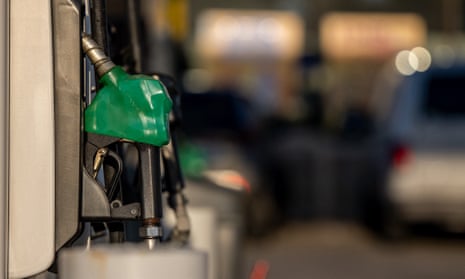A golf cart backfires due to issues with the carburetor or ignition system. Golf carts sometimes produce a loud popping sound known as backfiring.
This can occur when there are problems with the cart’s carburetor or ignition system. Backfiring happens when the air-fuel mixture in the engine is ignited outside the combustion chamber, often in the exhaust system. This can result in a loud noise and possibly even small flames shooting out of the cart’s exhaust.
Understanding the causes of backfiring in golf carts can help diagnose and resolve the issue, ensuring smooth operation and preventing any potential damage to the vehicle. We will explore some common reasons why golf carts backfire and offer possible solutions to address the problem.
Table of Contents
ToggleUnderstanding Backfire In Golf Carts
When it comes to golf cart maintenance, understanding the causes of backfire is crucial. Backfiring refers to the loud popping or banging sounds that occur when the engine’s combustion process is not working as it should. It can be a sign of an underlying issue that needs to be addressed promptly to ensure the smooth operation of your golf cart. In this article, we will dive into the definition of backfire in golf carts, explore the impact it has on their performance, and highlight common symptoms that indicate a backfiring golf cart.
Definition Of Backfire In Golf Carts
Backfire in golf carts occurs when the combustion process does not occur in the correct order or fails to complete properly. This causes the fuel mixture in the engine’s cylinders to ignite at the wrong time, resulting in the loud noises associated with backfiring. The explosion of unburnt fuel in the exhaust system is what causes those pops or bangs.
The Impact Of Backfiring On The Performance Of Golf Carts
Backfiring can have various negative impacts on the overall performance of golf carts. Firstly, it can lead to a loss of power and reduced acceleration. When the combustion process is disrupted, the engine may not generate enough force to move the golf cart efficiently. This can cause sluggishness and make it challenging to navigate through the course.
Additionally, backfiring can also result in decreased fuel efficiency. When the fuel mixture does not burn completely, it leads to wastage of fuel. Your golf cart may require more frequent refueling, which can ultimately increase operating costs. Moreover, backfiring puts extra strain on the engine and other components, potentially leading to long-term damage if left unaddressed.
Common Symptoms Of A Backfiring Golf Cart
Recognizing the symptoms of a backfiring golf cart is vital in identifying and resolving the underlying issues. Here are some telltale signs to watch out for:
- Popping or banging noises: The most obvious symptom of a backfiring golf cart is the loud and distinct popping or banging sounds coming from the exhaust system. These sounds often occur during deceleration or when the engine is under a heavy load.
- Loss of power: Backfiring can result in a noticeable loss of power, making your golf cart feel sluggish and less responsive. It may struggle to climb hills or accelerate smoothly.
- Inconsistent performance: A backfiring golf cart may experience intermittent performance issues. The engine may run smoothly at times, only to backfire during certain maneuvers or at specific speeds.
- Poor fuel efficiency: If you find your golf cart consuming more fuel than usual or requiring frequent refueling, it could be a sign of backfiring. Incomplete combustion contributes to fuel wastage.
- Flames or sparks from the exhaust: In severe cases, backfiring can cause visible flames or sparks to shoot out of the exhaust pipe. This indicates a serious problem that should be addressed immediately.
If you notice any of these symptoms in your golf cart, it is essential to have it inspected and repaired by a qualified technician. Ignoring backfiring issues can result in further damage and compromise the performance and safety of your golf cart.

Credit: www.bostonglobe.com
Fuel-related Causes Of Golf Cart Backfire
Golf cart backfiring can be an annoying problem that disrupts your peaceful golfing experience. One of the major reasons behind this issue is related to the fuel system. In this section, we will explore the fuel-related causes of golf cart backfire and provide you with some insights on how to diagnose and fix these issues.
One common fuel-related cause of a golf cart backfire is an insufficient fuel supply. This can occur due to various reasons such as:
- A clogged fuel line: A clogged fuel line restricts the flow of fuel to the engine, resulting in incomplete combustion and backfiring. Regular maintenance and cleaning of the fuel line can help prevent this issue.
- An improperly adjusted fuel pump: If the fuel pump is not adjusted correctly, it may fail to deliver an adequate amount of fuel to the engine, leading to backfiring. Checking the fuel pump’s settings and making proper adjustments can resolve this problem.
- A faulty fuel pump: A malfunctioning fuel pump may not generate enough pressure to supply the required amount of fuel to the engine. In such cases, replacing the fuel pump is necessary to eliminate the backfiring issue.
Another fuel-related cause of golf cart backfire is fuel mixture issues. A properly balanced fuel mixture is essential for the smooth running of the engine. Imbalances in the air-to-fuel ratio can lead to backfiring. Here are a few factors that can cause fuel mixture issues:
- Dirty or worn-out carburetor: Over time, carburetors can become dirty or worn-out, resulting in improper fuel mixing. Regular cleaning and maintenance of the carburetor can ensure a proper fuel-air mixture and prevent backfiring.
- Incorrect carburetor adjustment: If the carburetor is not properly adjusted, it may deliver an imbalanced fuel mixture to the engine. Adjusting the carburetor according to the manufacturer’s specifications can help in resolving this issue.
- Malfunctioning oxygen sensor: The oxygen sensor plays a crucial role in determining the correct fuel mixture. A faulty oxygen sensor can provide inaccurate readings, leading to backfiring. Replacing the sensor can restore the proper fuel-air ratio.
A clogged fuel line or filter can restrict the flow of fuel to the engine, resulting in backfiring. Debris, rust, or sediment can accumulate in the fuel line or filter over time. Regularly inspecting and cleaning the fuel line and filter can help prevent clogging and subsequent backfiring issues. If necessary, replacing the fuel filter is also recommended.
Ignition System Causes Of Golf Cart Backfire
Golf carts are popular for their smooth and quiet operation on the golf course. However, backfiring can unexpectedly disturb the tranquility on the greens. Understanding the potential causes of backfire helps golf cart owners troubleshoot and prevent this unpleasant disruption. One primary culprit lies within the crucial ignition system. Let’s explore some ignition system causes of golf cart backfire:
Faulty Spark Plug
A faulty spark plug is one of the common ignition system causes of golf cart backfire. This small but mighty component is responsible for igniting the air-fuel mixture inside the engine’s cylinders. Over time, the spark plug can wear out or become fouled by deposits. When this occurs, the spark becomes weaker or inconsistent, leading to incomplete combustion. The unburned fuel can then ignite in the exhaust system, resulting in a backfire. Regularly inspecting and replacing faulty spark plugs is essential for maintaining proper ignition and avoiding backfires.
Incorrect Ignition Timing
Ignition timing refers to the precise moment the spark plug fires in relation to the position of the piston. When the ignition timing is incorrect, either too advanced or too retarded, it can cause backfires in a golf cart engine. If the spark plug ignites too early (advanced timing), it can ignite the fuel prematurely, increasing the chances of a backfire. On the other hand, if the spark plug fires too late (retarded timing), unburned fuel can accumulate in the exhaust system and ignite during the exhaust stroke, resulting in a backfire. Ensuring correct ignition timing through regular maintenance and adjustment is crucial for preventing backfires and optimizing engine performance.
Defective Ignition Coil
The ignition coil plays a vital role in generating the high voltage necessary to create a spark in the spark plug. However, a defective or failing ignition coil can disrupt this process and lead to backfires in golf carts. An inadequate spark produced by a faulty ignition coil can cause the fuel-air mixture to ignite inconsistently, resulting in backfires. Regular inspection and timely replacement of defective ignition coils can help prevent this issue and keep the ignition system operating smoothly.
In summary, understanding the potential causes of golf cart backfire allows owners to address ignition system issues promptly. Faulty spark plugs, incorrect ignition timing, and defective ignition coils can all contribute to backfires. Regular maintenance and inspection of these ignition system components are crucial in ensuring a smooth and enjoyable golf cart experience, free from disruptive backfires.
Exhaust System Causes Of Golf Cart Backfire
When it comes to the smooth operation of your golf cart, the exhaust system plays a crucial role. However, certain issues with the exhaust system can lead to backfiring, causing frustration and potentially damaging your cart. In this section, we will explore three common exhaust system causes that can lead to golf cart backfire: restricted exhaust flow, cracked or damaged muffler, and exhaust leaks.
Restricted Exhaust Flow
A restricted exhaust flow is one of the primary culprits of backfiring in golf carts. Just like in any engine, the exhaust gases need to be able to flow freely to prevent pressure build-up. When the exhaust flow is restricted, it can lead to combustion irregularities, causing the cart’s engine to backfire.
The exhaust flow can be restricted due to various reasons, such as clogged catalytic converters, blocked mufflers, or even damaged exhaust pipes. If the exhaust flow is limited, the engine will struggle to expel the gases properly, leading to backfire.
Cracked Or Damaged Muffler
A cracked or damaged muffler can also contribute to the backfiring issue in golf carts. The muffler is responsible for reducing the noise produced by the engine and improving the exhaust flow. However, if the muffler develops cracks or other damages, it can disrupt the proper functioning of the exhaust system.
When the muffler is compromised, it can allow extra air to be drawn into the exhaust system. This excess air mixes with the unburned fuel in the exhaust, resulting in backfire. It is essential to inspect the muffler regularly and replace it if any cracks or damages are found.
Exhaust Leak
An exhaust leak is another common cause of backfiring in golf carts. An exhaust leak occurs when there is a gap or damage in the exhaust system, allowing the exhaust gases to escape before reaching the muffler. This can disrupt the proper pressure balance in the system, leading to backfire during engine operation.
Exhaust leaks can happen at various points in the exhaust system, including the exhaust manifold, joints, and connections. It is crucial to inspect the exhaust system for any signs of leaks regularly. If an exhaust leak is detected, the damaged component should be repaired or replaced promptly to prevent backfiring and further complications.
In conclusion, the exhaust system plays a critical role in the smooth operation of your golf cart. However, issues such as restricted exhaust flow, a cracked or damaged muffler, and exhaust leaks can result in backfiring. Regular inspection and maintenance of the exhaust system is essential to ensure proper functioning and prevent backfire issues.
Carburetor Issues That Lead To Golf Cart Backfire
When it comes to backfiring issues in golf carts, one of the common culprits is a problematic carburetor. The carburetor is a crucial component responsible for the fuel-air mixture in the engine. A properly functioning carburetor ensures smooth operation and efficient performance. However, when the carburetor encounters issues, such as dirt or clogs, improper adjustments, or a malfunctioning float, it can lead to backfires. In this section, we will explore the various carburetor issues that can cause a golf cart to backfire.
Dirty Or Clogged Carburetor
A dirty or clogged carburetor is a common problem that can result in a golf cart backfiring. Over time, dirt, debris, and varnish can accumulate in the small orifices and passages of the carburetor, obstructing the proper flow of fuel and air. This can disrupt the fuel-air mixture ratio and lead to backfires.
Regular maintenance and cleaning of the carburetor is essential to prevent backfiring issues. Cleaning the carburetor involves removing it from the golf cart, disassembling it, and using a carburetor cleaner to remove any accumulated dirt or debris. It is also important to inspect the carburetor gaskets and replace them if necessary to ensure a proper seal.
Improper Carburetor Adjustment
Another factor that can contribute to golf cart backfires is an improper carburetor adjustment. A poorly adjusted carburetor can affect the fuel-air mixture, leading to an imbalance that causes backfires. Common causes of improper adjustment include incorrect idle speed, mixture screw positioning, or incorrect choke settings.
To resolve this issue, it is important to consult the golf cart’s manufacturer manual or seek the assistance of a professional technician. They can properly adjust the carburetor to ensure the correct fuel-air mixture, eliminating the possibility of backfires.
Malfunctioning Carburetor Float
A malfunctioning carburetor float can also be a possible cause of backfiring in golf carts. The carburetor float controls the flow of fuel into the carburetor’s bowl, regulating the fuel level. If the float is not functioning correctly, it can result in an uneven fuel supply, leading to an imbalanced fuel-air mixture and subsequent backfires.
Inspecting the carburetor float and ensuring it is in good condition is crucial for preventing backfiring. If a float is damaged or worn out, it should be replaced promptly to restore proper fuel flow and eliminate backfires.
Tips To Prevent Golf Cart Backfire
Prevent golf cart backfire with these expert tips! Learn what causes a golf cart to backfire and how to avoid the potential hazards associated with it.
Regular Maintenance And Inspections
Regular maintenance and inspections are essential for preventing golf cart backfire. By keeping up with routine maintenance, you can identify any potential issues before they become major problems. Here are some key areas to focus on:
- Inspect the exhaust system: Check for any leaks or loose connections in the exhaust system. A damaged or faulty exhaust system can cause backfire. Make sure all parts are securely fastened and in good condition.
- Check the spark plugs and ignition system: Faulty spark plugs or ignition system can lead to backfiring. Regularly clean or replace spark plugs as needed and ensure the ignition timing is properly adjusted.
- Inspect the fuel system: Check for any clogs or blockages in the fuel lines and filters. Clean or replace any dirty fuel filters, and ensure there are no leaks in the fuel system that could cause backfire.
- Inspect the carburetor: The carburetor plays a crucial role in the proper fuel-air mixture. Check for any dirt or debris that may affect its performance and clean it if necessary. Additionally, make sure the carburetor is properly adjusted to prevent backfire.
- Inspect the electrical system: Check the battery and wiring connections for any corrosion or loose connections. Faulty electrical connections can cause irregular fuel combustion and result in backfire.
Using High-quality Fuel
Using high-quality fuel is vital for preventing golf cart backfires. Poor-quality or contaminated fuel can lead to improper fuel combustion, resulting in backfire. Here are a few tips to consider:
- Always purchase fuel from reputable gas stations to ensure its quality and purity.
- Use the recommended fuel type for your golf cart. Check the owner’s manual or consult with the manufacturer for the appropriate fuel type.
- Avoid using old or stale fuel that has been sitting in the tank for an extended period. It can deteriorate and affect the engine’s performance, leading to potential backfire.
- Consider using fuel additives or stabilizers to maintain fuel quality and prevent the build-up of deposits in the fuel system.
Properly Adjusting The Carburetor And Ignition Timing
Proper adjustment of the carburetor and ignition timing is crucial for preventing golf cart backfires. Here’s what you need to know:
- The carburetor controls the fuel-air mixture entering the engine. If it’s improperly adjusted, it can lead to a rich or lean mixture, both of which can cause backfire. Consult the owner’s manual or seek professional assistance to ensure the carburetor is adjusted correctly.
- Ignition timing refers to the precise moment the spark plug ignites the fuel-air mixture in the cylinder. Incorrect ignition timing can result in backfire. It’s essential to follow the manufacturer’s recommendations for setting the ignition timing or seek professional assistance if needed.
- Regularly check the carburetor and ignition system for any signs of wear or damage. Replace any worn-out parts promptly to prevent backfire.
Frequently Asked Questions Of What Causes A Golf Cart To Backfire?
What Causes A Golf Cart To Backfire?
A golf cart may backfire due to issues with the ignition system, fuel intake, or exhaust system.
Can A Dirty Air Filter Cause A Golf Cart To Backfire?
Yes, a dirty air filter can disrupt the air-fuel mixture and lead to backfiring in a golf cart.
Why Does A Golf Cart Backfire While Accelerating?
Backfiring during acceleration in a golf cart can be caused by excessively rich fuel mixture or ignition timing issues.
Is A Faulty Spark Plug Responsible For Golf Cart Backfiring?
Yes, a faulty spark plug can prevent proper combustion, leading to backfiring in a golf cart.
How Can I Prevent My Golf Cart From Backfiring?
Regular maintenance, including tuning the engine, cleaning air filters, and using high-quality fuel, can prevent golf cart backfiring.
Conclusion
Understanding the causes of a golf cart backfire is crucial for proper maintenance and troubleshooting. From a lean air-fuel mixture to malfunctioning spark plugs, various factors can lead to this issue. Regular maintenance, proper tuning, and addressing any underlying mechanical issues can help prevent backfires and ensure a smoother and safer golf cart experience.
So, next time you hear that unexpected backfire, you’ll be equipped with the knowledge to identify and rectify the problem. Happy golfing!






